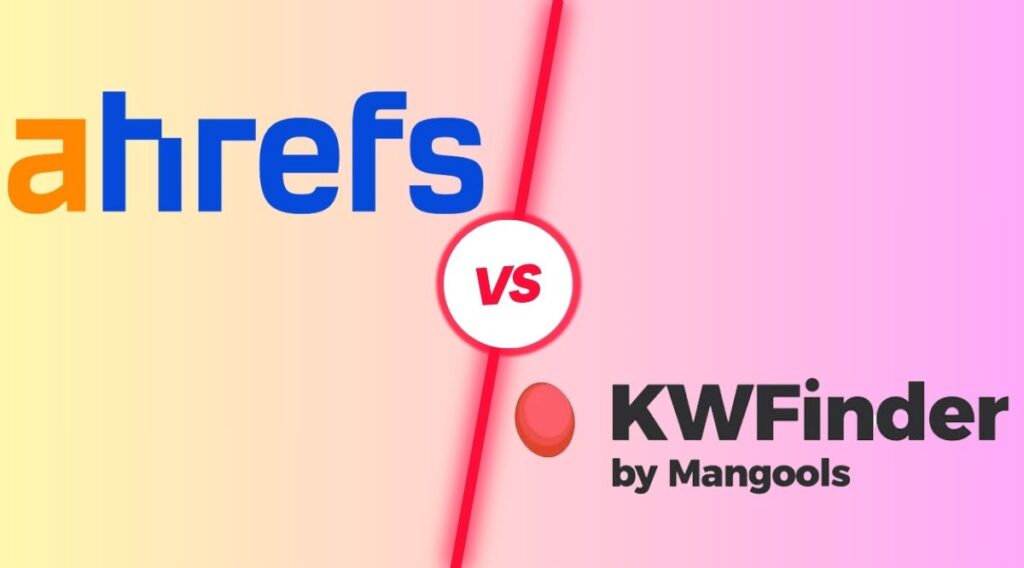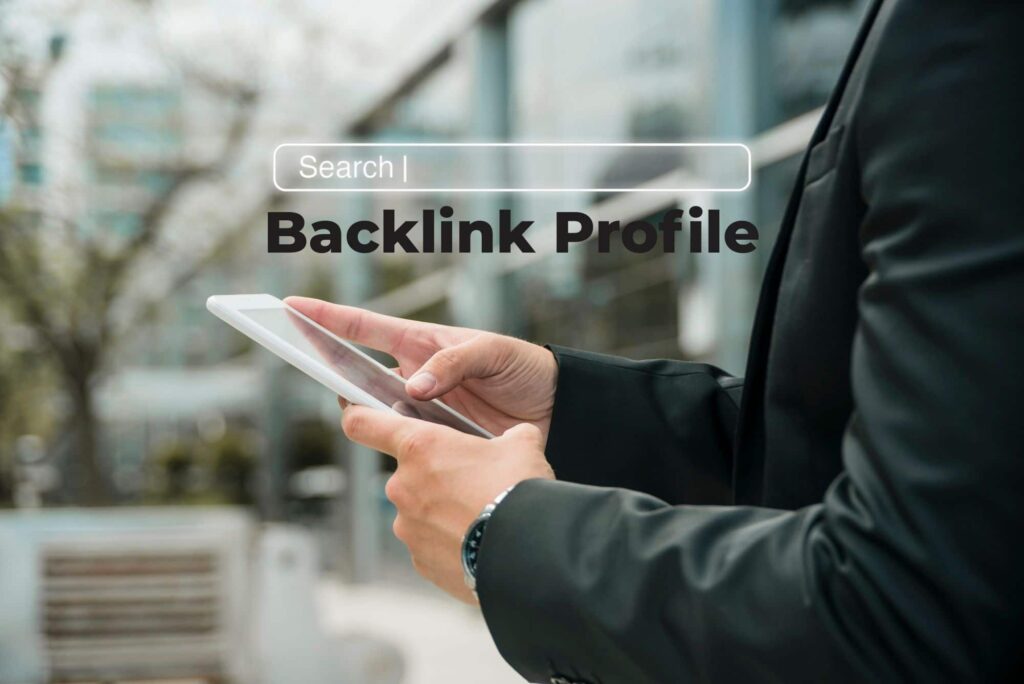Is Shopify safe? Explore our comprehensive security review to ensure your Shopify store is protected in 2024.? Shopify has emerged as a predominant force in e-commerce, revolutionizing how businesses establish and manage their online presence. Its user-friendly interface, extensive customization options, and robust ecosystem of apps and integrations have made it the platform of choice for entrepreneurs and established brands.
Is Shopify safe in 2024? and security features
Against this backdrop, this essay aims to evaluate the safety of Shopify’s security features of Shopify. By examining its built-in security protocols, compliance standards, and additional measures available to merchants, we seek to comprehensively assess Shopify’s efficacy in protecting the interests of businesses and consumers in the digital marketplace.
Understanding E-commerce Security
E-commerce security
E-commerce security encompasses the measures and protocols to protect online transactions, sensitive customer information, and digital assets from unauthorized access, fraud, and other cyber threats. It involves the implementation of encryption, authentication, access controls, and other security agents to ensure the integrity, confidentiality, and availability of data exchanged in online transactions.
Risks associated with online shopping
Online shopping exposes consumers and merchants to various risks, including:
- Payment fraud: Unauthorized access to payment information or misuse of credit card details can lead to fraudulent transactions.
- Data breaches: Cybercriminals may target e-commerce platforms to steal customer data, such as personal information and payment details, which can be sold on the dark web or used for identity theft.
- Phishing attacks: Malicious actors may attempt to deceive users into disclosing sensitive information through fraudulent emails, websites, or messages.
- Malware and hacking: Vulnerabilities in e-commerce websites or inadequate security measures can be exploited by hackers to install malware, compromise user accounts, or disrupt operations.
- Regulatory non-compliance: Failure to adhere to industry standards and data protection regulations can result in legal consequences and damage to reputation.
Importance of choosing a secure e-commerce platform
Selecting a secure e-commerce platform is crucial for businesses and consumers alike due to the following reasons:
- Protecting sensitive information: A secure platform ensures that customer data, including payment details and personal information, is safeguarded against unauthorized access and misuse.
- Building trust and credibility: Demonstrating a commitment to security instills customer confidence, enhancing brand reputation and encouraging repeat purchases.
- Mitigating financial risks: By minimizing the likelihood of payment fraud and data breaches, businesses can avoid costly repercussions such as chargebacks, fines, and legal liabilities.
- Ensuring business continuity: Robust security measures help prevent disruptions to operations caused by cyber-attacks or compliance violations, thereby maintaining customer trust and preserving revenue streams.
- Meeting regulatory requirements: Compliance with industry standards and data protection regulations is essential for avoiding penalties and maintaining the integrity of the business.
Shopify is an e-commerce platform.
Is Shopify safe in 2024? Shopify is a widely used e-commerce forum that permits companies of any size to build and operate online stores effortlessly. Established in 2006, it provides a comprehensive range of tools and benefits to simplify selling products and services online. Shopify offers everything a merchant needs to set up a successful online store, from personalized storefronts to secure payment processing and integrated marketing solutions.
Brief history and growth of Shopify
Originally conceived as an online snowboard equipment store, Shopify was founded by Tobias Lütke, Daniel Weinand, and Scott Lake in 2006. Over the years, the platform has evolved from a simple e-commerce solution to a global powerhouse, serving millions of businesses in over 175 countries. Shopify went public in 2015, marking a significant milestone in its journey of growth and development. Since then, the company has continued to innovate and adapt to the changing needs of merchants, introducing new features and benefits to enhance the e-commerce experience.
Key features and benefits for online businesses
Shopify offers a range of qualities and benefits that make it an appealing choice for online businesses:
- User-friendly interface: Shopify’s intuitive interface makes it effortless for retailers to set up and customize their online stores without technical expertise.
- Customizable themes: With a wide selection, merchants can create visually stunning storefronts that reflect their brand identity and appeal to their target audience.
- Secure payment processing: Shopify provides built-in payment processing options, including Shopify Payments, as well as support for third-party payment gateways, ensuring secure transactions for both merchants and customers.
- Integrated marketing tools: From email marketing and social media integration to search engine optimization (SEO) features, Shopify offers marketing tools to help merchants drive traffic and boost sales.
- Extensive app ecosystem: With thousands of apps and integrations available in the Shopify App Store, merchants can enhance their store’s functionality and tailor it to their needs.
- Scalability: Whether starting small or scaling up, Shopify offers flexible pricing plans and scalable infrastructure to support businesses of all sizes and phases of growth.
Security Features of Shopify
SSL encryption and secure checkout process
Shopify prioritizes the security of customer data through the implementation of SSL (Secure Sockets Layer) encryption across all storefronts. That encryption protocol guarantees that sensitive information, such as payment details and personal data, is transmitted securely between the customer’s browser and the Shopify servers. Additionally, Shopify’s checkout process is designed to be secure and PCI DSS compliant, providing customers with peace of mind when purchasing online.
Payment gateway integrations and PCI compliance
Shopify offers seamless integration with considerable payment gateways, including Shopify Payments, PayPal, Stripe, and more. These integrations allow merchants to provide various payment options to their customers while ensuring that transactions are processed securely. Furthermore, Shopify is PCI DSS compliant, adhering to strict security standards set forth by the payment card industry to protect against payment fraud and data breaches.
Fraud prevention tools and chargeback protection
To help merchants combat fraudulent activities, Shopify provides various fraud prevention tools and features. These include order risk analysis, address verification, and automatic fraud detection algorithms that flag suspicious transactions for further review. Additionally, Shopify offers chargeback protection to eligible merchants, reimbursing them for certain fraudulent chargebacks and providing assistance throughout the dispute resolution process.
Importance of security in online shopping
Security is a significant concern for online shoppers in the rising cyber threats and data breaches. E-commerce platforms require consumers to provide sensitive personal and financial information, which makes it mandatory to have tough security measures in place to guard against potential risks such as identity theft and fraud.
Data Protection and Privacy Measures
Customer data and GDPR compliance
Is Shopify safe in 2024? Shopify is committed to safeguarding customer data and ensuring adherence to data protection rules, including the General Data Protection Regulation (GDPR). As part of its GDPR compliance efforts, Shopify provides merchants with tools and resources to manage customer data responsibly. That includes data access controls, deletion requests, and consent management tools, enabling merchants to adhere to GDPR requirements for collecting, storing, and processing personal data.
Secure hosting and data backups on Shopify
Shopify’s infrastructure is designed with security and reliability in mind, utilizing state-of-the-art technology and industry best practices to protect customer data. Robust security measures, including firewalls, intrusion detection systems, and regular security audits back Shopify’s hosting services. Additionally, Shopify automatically backs up merchant data to ensure continuity of service and protect against data loss in the event of hardware defeats or other unforeseen incidents.
Customer account security and password protection
To enhance customer account security, Is Shopify safe in 2024? Shopify implements various measures to protect against unauthorized access and account takeover. That includes strong password requirements, multi-factor authentication options, and account lockout policies to prevent brute-force attacks. Furthermore, Shopify encrypts sensitive customer information stored on its servers, such as passwords and payment details, using industry-standard encryption algorithms to mitigate the risk of data breaches and unauthorized access.
Shopify’s Approach to Cybersecurity
Collaboration with security experts and bug bounty program
Shopify takes a proactive approach to cybersecurity by collaborating with security experts and engaging in a bug bounty program. Through partnerships with leading cybersecurity researchers and ethical hackers, Shopify identifies and addresses potential vulnerabilities in its platform before malicious actors can exploit them. The bug bounty program incentivizes security researchers to responsibly report any discovered vulnerabilities, enabling Shopify to swiftly patch security flaws and enhance the overall security posture of its platform.
Continuous monitoring and updates for security vulnerabilities
To stay ahead of emerging threats, Shopify employs continuous monitoring and proactive security measures to detect and mitigate security vulnerabilities. That includes regular security assessments, vulnerability scanning, and penetration testing to identify potential defects in its systems and infrastructure. Shopify prioritizes timely security updates and patches to address known vulnerabilities and protect merchants against the latest cybersecurity threats.
Transparency in disclosing security incidents and resolutions
In the event of a security incident, Shopify prioritizes transparency and open communication with merchants and stakeholders. Shopify promptly discloses security incidents through its Security Advisories page, providing detailed information about the nature of the incident, the impact on merchants, and the steps taken to mitigate the issue. Additionally, Shopify proactively communicates with affected merchants, guiding security best practices and offering support to help minimize the impact of the incident on their businesses.
Third-Party App Security
Risks associated with using third-party apps on Shopify
While third-party apps offer additional functionality and customization options for Shopify stores, they also introduce potential security risks. These risks include:
- Data breaches: Third-party apps may access sensitive customer data or store information insecurely, increasing the risk of data breaches and unauthorized access.
- Malicious code: Apps developed by untrusted or malicious developers may contain vulnerabilities or hidden malware that can compromise the security of the Shopify store.
- Integration vulnerabilities: Integrating third-party apps with Shopify can create new attack vectors, potentially exposing the store to security vulnerabilities or exploitation.
- Compliance issues: Using non-compliant apps may violate industry regulations or data protection laws, resulting in legal consequences and reputational damage for the merchant.
Evaluating app developers and reviews for security
Merchants should conduct thorough due diligence when evaluating third-party apps on their Shopify stores. That includes:
- Reviewing developer credentials: Verify the reputation and trustworthiness of app developers by researching their background, experience, and track record in developing secure applications.
- Reading user reviews and ratings: Check user reviews and ratings for third-party apps to gauge their reliability, security, and overall performance. Pay attention to any reported security issues or concerns raised by other merchants.
- Assessing security features: Look for third-party apps prioritizing security and offering features such as data encryption, access controls, and regular safety updates to protect against potential threats.
- Seeking recommendations: Seek recommendations from other merchants, industry experts, or Shopify’s app marketplace to identify reputable third-party apps that meet specific security requirements and business needs.
Compliance and Legal Considerations
Industry regulations applicable to e-commerce
E-commerce businesses are subject to various industry regulations to protect consumers, ensure fair competition, and safeguard sensitive information. Some key regulations applicable to e-commerce include:
- General Data Protection Regulation (GDPR): Executed by the European Union, GDPR governs the collection, storage, and processing of personal data of EU residents, imposing strict requirements on data protection, consent management, and privacy rights.
- Consumer Protection Laws: Various consumer protection laws govern e-commerce transactions, covering product quality, pricing transparency, advertising practices, and consumer rights regarding refunds, returns, and dispute resolution.
- Anti-Spam Legislation: Anti-spam laws regulate commercial electronic messages, requiring businesses to obtain consent from recipients before sending marketing emails and providing mechanisms for recipients to opt out of further communications.
Shopify’s compliance with international standards
Is Shopify safe in 2024? As a global e-commerce platform, Shopify is committed to compliance with international standards and regulations to ensure its platform’s security, privacy, and trustworthiness. Shopify maintains compliance with industry standards such as PCI DSS for payment security and GDPR for data protection. Additionally, Shopify provides merchants with tools and resources to help them comply with relevant regulations, such as GDPR compliance features for managing customer data and privacy settings.
Legal implications and liabilities for online merchants
Online merchants face various legal implications and liabilities related to e-commerce operations, including:
- Contractual obligations: Merchants are bound by the terms and conditions of agreements with customers, payment processors, suppliers, and third-party service providers, which may include provisions related to product warranties, liability limitations, and dispute resolution mechanisms.
- Intellectual property rights: Merchants must respect intellectual property rights, including trademarks, copyrights, and patents, to avoid infringement claims and legal disputes related to the use of third-party content, product designs, or branding.
- Consumer protection laws: Merchants must comply with consumer protection laws governing e-commerce transactions, such as regulations regarding product descriptions, pricing transparency, shipping terms, and consumer rights regarding refunds and returns.
- Data protection and privacy: Merchants are responsible for protecting customer data and complying with data defense laws such as GDPR, including obtaining consent for data collection and processing, implementing security measures to protect against data breaches, and providing mechanisms for data access and deletion requests.
- Liability for security breaches: In a data breach or security incident, merchants may be liable for harm, fines, and legal penalties resulting from the unauthorized access, theft, or misuse of customer data or payment information.
Customer Trust and Reputation
Impact of security on building customer trust
Security is crucial in building customer trust in e-commerce platforms like Shopify. Customers are more likely to engage in commerce and develop long-term business relationships when they feel assured that their personal and financial information is secure. Security breaches or incidents can erode customer trust and tarnish a platform’s reputation, leading to loss of business and negative brand perception. Therefore, prioritizing robust security measures, such as encryption, secure payment processing, and data protection protocols, is essential for fostering customer trust and loyalty.
Reputation of Shopify in the e-commerce community
Shopify has earned a strong reputation in the e-commerce community for its commitment to security, reliability, and innovation. With millions of merchants worldwide and a track record of success, Shopify is widely regarded as a trusted and reputable e-commerce platform. Merchants praise Shopify’s user-friendly interface, extensive features and customization options, and responsive customer support. Additionally, Shopify’s dedication to compliance with industry regulations and adherence to security best practices further enhances its standing as a reliable partner for businesses of all sizes.
Customer testimonials and reviews on security experiences
Customer testimonials and reviews provide valuable insights into the security experiences of merchants using Shopify. While individual experiences may vary, many merchants commend Shopify for its robust security features, including SSL encryption, secure payment processing, and proactive fraud detection tools. Positive reviews often highlight Shopify’s reliability, ease of use, and peace of mind, knowing their customers’ data is protected. Furthermore, Shopify’s transparent approach to security incidents and resolutions reinforces customer trust and confidence in the platform.
Conclusion
Is Shopify safe in 2024? Shopify’s safety and security features are paramount in maintaining a secure environment for online businesses and their customers. Shopify protects sensitive data and fosters user trust by implementing SSL encryption, secure payment processing, and proactive fraud prevention measures. It emphasizes the importance of bold security measures for online businesses, highlighting the necessity of staying vigilant against evolving cyber threats and maintaining compliance with industry regulations. Overall, Shopify emerges as a secure e-commerce platform that prioritizes the security and solitude of its users. With its robust security infrastructure, commitment to compliance, and reputation for reliability, Shopify gives merchants the peace of mind to focus on growing their businesses and building lasting relationships with their customers.
Frequently Asked Questions (FAQs)
How secure is Shopify compared to other e-commerce platforms?
Shopify prioritizes security with robust measures like SSL encryption, secure payment processing, and regular security updates, making it highly secure compared to other e-commerce platforms.
What measures does Shopify take to prevent fraud?
Shopify employs various fraud prevention tools, including order risk analysis, address verification, and automatic fraud detection algorithms, to mitigate the risk of fraudulent transactions.
Can I customize security settings on my Shopify store?
Yes, Shopify allows merchants to customize security settings, including password requirements, access controls, and permissions, to align with their security needs and preferences.
Is Shopify’s payment processing system secure for customers?
Yes, Shopify’s payment processing system is secure for customers, utilizing encryption and compliance with PCI DSS standards to protect payment information during transactions.
How does Shopify protect against data breaches?
Shopify protects against data breaches through secure hosting, encryption, access controls, and regular security audits to safeguard customer data and prevent unauthorized access.
What should I do if my Shopify store is hacked?
If your Shopify store is hacked, Shopify provides resources and support to help mitigate the breach’s impact, including guidance on securing your store, notifying affected customers, and working with law enforcement.
Does Shopify provide insurance or guarantees against cyberattacks?
Shopify does not provide insurance against cyberattacks, but it offers security features and compliance tools to help merchants protect against and respond to security threats.
Are there any additional costs for enhanced security features on Shopify?
Some enhanced security features on Shopify may incur additional costs, such as advanced fraud detection tools or security apps from the Shopify App Store.
Can Shopify help with legal compliance requirements for my business?
Yes, Shopify provides resources and tools to help merchants understand and comply with legal requirements, including GDPR compliance features and guidance on regulatory compliance.
How often does Shopify update its security features?
Shopify updates its security features regularly to address emerging threats and vulnerabilities, with ongoing monitoring, testing, and implementation of security patches and updates to maintain the platform’s security posture.


































